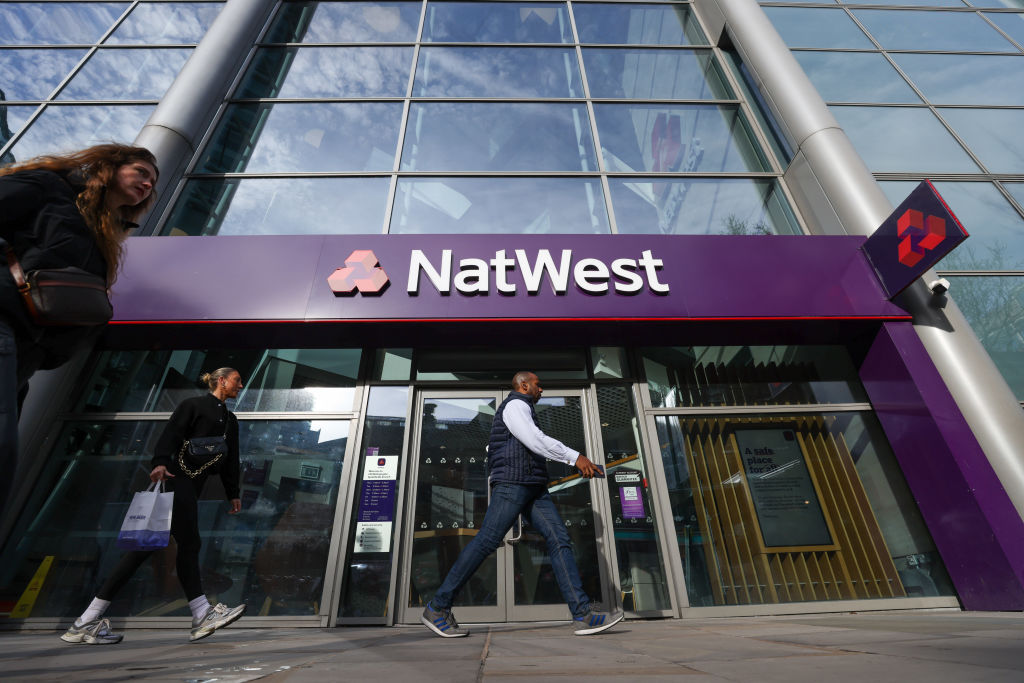Get the latest financial news, insights and expert analysis from our award-winning MoneyWeek team, to help you understand what really matters when it comes to your finances.
You are now subscribed
Your newsletter sign-up was successful
Want to add more newsletters?

Twice daily
MoneyWeek
Get the latest financial news, insights and expert analysis from our award-winning MoneyWeek team, to help you understand what really matters when it comes to your finances.

Four times a week
Look After My Bills
Sign up to our free money-saving newsletter, filled with the latest news and expert advice to help you find the best tips and deals for managing your bills. Start saving today!
Expatriates looking for a mortgage on a property in the UK now have a wider choice of loans. Cambridge Building Society and Tipton & Coseley Building Society have both launched new ranges of buy-to-let mortgages aimed at British people living overseas. Both ranges include fixed and discount deals, available for both new purchases and remortgaging.
About five million UK nationals live overseas, and many are keen to hold on to a home in the UK, or to invest in one to rent out. But the available mortgage options are quite restricted and in most cases, you'll need to get a specialist landlord mortgage.
It is possible to secure a standard residential home loan as an expat, but it's tricky to arrange, says Guy Stephenson, director of specialist expat mortgage broker Offshore Online. "Lenders will want to see evidence that close family are living in the house. Since most expats work abroad and cannot live in two places, for the majority, a buy-to-let is the more appropriate solution."
MoneyWeek
Subscribe to MoneyWeek today and get your first six magazine issues absolutely FREE

Sign up to Money Morning
Don't miss the latest investment and personal finances news, market analysis, plus money-saving tips with our free twice-daily newsletter
Don't miss the latest investment and personal finances news, market analysis, plus money-saving tips with our free twice-daily newsletter
You will typically need to seek out a specialist lender: options include Paragon, Saffron Building Society, Market Harborough Building Society, Al Rayan Bank, Skipton International, Natwest International and Kent Reliance. And be prepared to jump through a lot more hoops than for the standard home loan.
"It can be a difficult process to secure a mortgage when clients are overseas, especially with the time difference and tighter lending criteria," says Aaron Strutt of Trinity Financial. "Many... lenders like borrowers to work for multinational firms, have a minimum income of at least £25,000." Interest rates tend to be higher, and a deposit of 25% is usually required.
Another factor is the European Mortgage Credit Directive, introduced in 2016, which means individuals paid in a foreign currency now come under closer scrutiny when their loan applications are assessed. The underwriting process needs to take account of possible exchange-rate fluctuations, as well as looking at a borrower's overall financial position.
Keep the tax office up to date
Unsurprisingly, salaried expats have the greatest choice of mortgages. Lenders often exclude the self-employed, on the basis that income cannot be verified to a high enough standard, unless it is audited by a reputable accountancy practice.
Expats face tougher identity checks. Getting a correctly certified passport can be tricky if the borrower lives in a remote area without access to international lawyers, accountants or diplomats. And don't rely on your employer to help out. "Big multinational companies... will have standard formats for issuing employee references which seldom match the requirements laid down by a lender, who is trying to underwrite on the basis of very specific individual information needs," notes Stephenson.
It is also easier to get approval for a UK mortgage from certain countries than others. Most lenders have a "restricted" list of countries where they won't lend (for example, countries subject to sanctions or with a weak reputation for regulation). Many African nations and some in Eastern Europe meet this category.
Finally, if you do buy, remember to keep the tax office informed. If you live abroad for six months or more per year, and rent out a property, you'll be classed as a "non-resident landlord" by HMRC even if you're aUK residentfor tax purposes. Wherever your income is taxed, you'll be required to pay tax on the rent you receive.
Get the latest financial news, insights and expert analysis from our award-winning MoneyWeek team, to help you understand what really matters when it comes to your finances.
Emma Lunn is a multi-award-winning journalist who specialises in personal finance and consumer issues. With more than 18 years’ experience in personal finance, Emma has covered topics including mortgages, first-time buyers, leasehold, banking, debt, budgeting, broadband, energy, pensions and investments. Emma’s one of the most prolific freelance personal finance journalists with a back catalogue of work in newspapers such as The Guardian, The Independent, The Daily Telegraph, the Mail on Sunday and the Mirror. As a freelancer she has also completed various in-house contracts at The Guardian, The Independent, Mortgage Solutions, Orange and Moneywise.
She also writes regularly for specialist magazines and websites such as Property Hub, Mortgage Strategy and YourMoney.com. She’s particularly proud of her work writing about the leasehold sector and a Guardian front-page story about a dodgy landlord. She has a real passion for helping people learn about money – especially when many people are struggling to get by in today’s challenging economic climate – and prides herself on simplifying complex subjects.
-
 Should you buy an active ETF?
Should you buy an active ETF?ETFs are often mischaracterised as passive products, but they can be a convenient way to add active management to your portfolio
-
 Power up your pension before 5 April – easy ways to save before the tax year end
Power up your pension before 5 April – easy ways to save before the tax year endWith the end of the tax year looming, pension savers currently have a window to review and maximise what’s going into their retirement funds – we look at how
-
 Nationwide promises to protect all its branches from closures until at least 2030
Nationwide promises to protect all its branches from closures until at least 2030The building society has extended its pledge to keep all high street Nationwide and Virgin Money branches open, now until at least 2030.
-
 Thousands of Brits switch to Nationwide, Monzo and NatWest – which banks are least popular?
Thousands of Brits switch to Nationwide, Monzo and NatWest – which banks are least popular?We look at the most and least popular banks and building societies as current account bank switches reach a record high. Is it worth moving your money?
-
 NatWest sell-off moves closer as the government offloads more shares
NatWest sell-off moves closer as the government offloads more sharesThe UK Treasury's stake in NatWest has fallen to below 11% - here is what it means for the share price
-
 NatWest online banking and mobile app 'running again' after outage
NatWest online banking and mobile app 'running again' after outageBreaking NatWest's online banking and mobile app went down this morning, affecting as many as 10 million users.
-
 Best and worst UK banks revealed
Best and worst UK banks revealedWe reveal the best UK banks – and the worst – when it comes to managing your money and good customer service. How does your provider compare?
-
 iPhone users can now check bank balance from Apple Wallet
iPhone users can now check bank balance from Apple WalletNew tool aims to make it easier for smartphone users to track bank balance and spending
-
 Barclays launches £175 switching deal - plus earn 5.12% interest on cash
Barclays launches £175 switching deal - plus earn 5.12% interest on cashBarclays launches £175 switch bonus, which also gives you access to 5.12% easy access savings. We have all the details
-
 Act now to bag NatWest-owned Ulster Bank's 5.2% easy access savings account
Act now to bag NatWest-owned Ulster Bank's 5.2% easy access savings accountUlster Bank is offering savers the chance to earn 5.2% on their cash savings, but you need to act fast as easy access rates are falling. We have all the details

